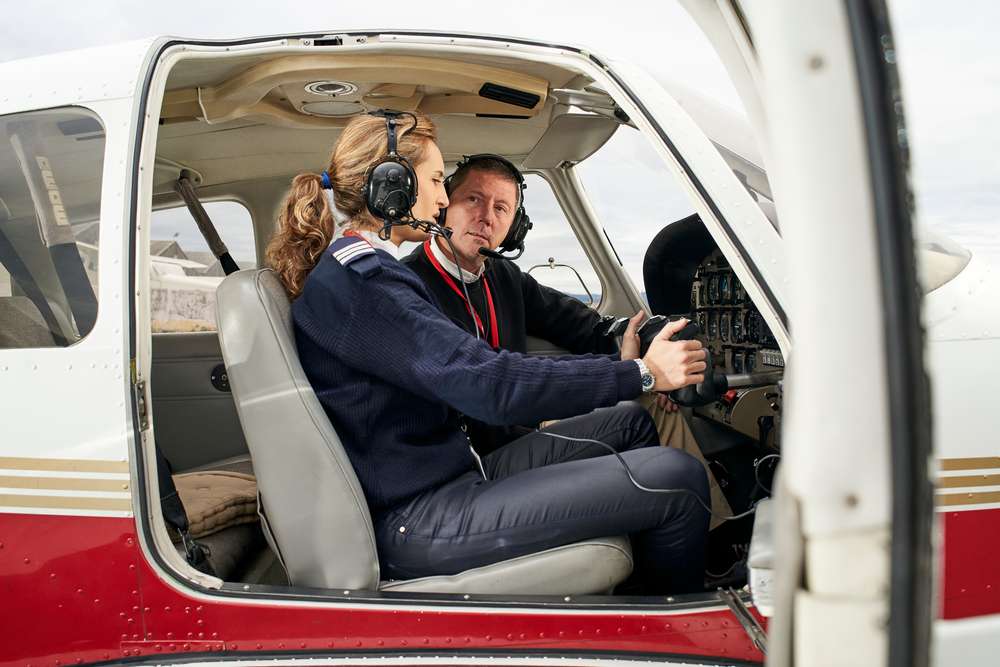The Sky's the Limit: A Comprehensive Guide to Aviation Training
Aviation training is the foundation of a successful career in the skies. Whether you dream of piloting commercial airliners, operating private jets, or serving in military aviation, proper education and hands-on experience are crucial. This comprehensive guide explores the various aspects of aviation training, from ground school to flight simulators and real-world cockpit experience.

-
Commercial Pilot License (CPL) Training: For aspiring professional pilots, this program builds on PPL skills and prepares students for careers in commercial aviation.
-
Airline Transport Pilot License (ATPL) Training: The highest level of pilot certification, ATPL training is required for those who wish to become captains of large commercial aircraft.
-
Flight Instructor Certification: This program trains experienced pilots to teach others, allowing them to pass on their knowledge and skills.
-
Type Rating Training: Specific to particular aircraft models, this training is necessary for pilots to operate certain types of planes.
Each of these programs combines theoretical knowledge with practical flight training, ensuring that pilots are well-prepared for the challenges they’ll face in the air.
How long does it take to complete aviation training?
The duration of aviation training varies depending on the type of program and the individual’s dedication. On average:
-
Private Pilot License: 3-6 months
-
Commercial Pilot License: 12-18 months (after obtaining PPL)
-
Airline Transport Pilot License: 2-3 years (including previous certifications)
-
Flight Instructor Certification: 2-3 months (after obtaining CPL)
-
Type Rating Training: 2-4 weeks (depending on the aircraft complexity)
These timeframes assume full-time study and favorable weather conditions for flight training. Part-time students may take longer to complete their programs. It’s important to note that aviation training is not just about logging hours; it’s about mastering skills and developing sound judgment.
What subjects are covered in aviation ground school?
Ground school is a crucial component of aviation training, providing the theoretical knowledge that underpins safe and efficient flight operations. Key subjects covered include:
-
Aerodynamics: Understanding how aircraft generate lift and maneuver in the air
-
Aircraft Systems: Learning about the various components and systems of an airplane
-
Navigation: Mastering the tools and techniques for plotting courses and determining position
-
Meteorology: Studying weather patterns and their impact on flight conditions
-
Flight Planning: Developing skills in route selection, fuel calculations, and weight and balance
-
Aviation Regulations: Familiarizing with air laws and operational procedures
-
Human Factors: Exploring the psychological and physiological aspects of flying
-
Radio Communications: Learning proper radio etiquette and procedures
These subjects form the foundation of a pilot’s knowledge and are essential for passing written exams and practical flight tests.
How important are flight simulators in aviation training?
Flight simulators play an increasingly vital role in modern aviation training. They offer several advantages:
-
Cost-Effectiveness: Simulator time is generally less expensive than actual flight time
-
Safety: Students can practice emergency procedures without real-world risks
-
Repeatability: Scenarios can be reset and practiced multiple times
-
Versatility: Simulators can recreate various weather conditions and aircraft types
-
Availability: Training can continue regardless of actual weather conditions
While simulators cannot entirely replace real flight experience, they are an invaluable tool for developing and refining skills. Many airlines and training programs now incorporate advanced full-motion simulators that provide a highly realistic flying experience.
What are the physical and medical requirements for pilot training?
Becoming a pilot requires meeting certain physical and medical standards to ensure flight safety. These requirements include:
-
Vision: Pilots must have good vision, correctable to 20/20
-
Hearing: Clear communication is crucial, so hearing tests are part of medical exams
-
Physical Fitness: While not as stringent as military requirements, pilots should be in good overall health
-
Medical Certificate: Pilots must obtain and maintain an appropriate medical certificate based on their license level
-
Color Vision: The ability to distinguish between colors is essential for recognizing signals and instrument displays
-
Height and Weight: There are minimum and maximum limits, primarily for ergonomic reasons in the cockpit
Regular medical check-ups are required throughout a pilot’s career to maintain their license and ensure ongoing fitness to fly.
What career opportunities are available after completing aviation training?
Aviation training opens up a wide range of career opportunities, both in the cockpit and beyond. Some popular career paths include:
-
Commercial Airline Pilot: Flying passengers or cargo for major airlines
-
Corporate Pilot: Operating private jets for businesses or high-net-worth individuals
-
Flight Instructor: Teaching new pilots and helping experienced ones maintain their skills
-
Military Pilot: Serving in various branches of the armed forces
-
Agricultural Pilot: Conducting crop-dusting and other agricultural aviation operations
-
Search and Rescue Pilot: Participating in emergency response and rescue missions
-
Test Pilot: Evaluating new aircraft designs and modifications
-
Aerial Firefighting Pilot: Operating aircraft to combat wildfires
Beyond flying roles, aviation training can also lead to careers in air traffic control, aviation management, and aerospace engineering. The skills and knowledge gained through pilot training are highly transferable and respected in many industries.
In conclusion, aviation training is a challenging but rewarding journey that opens up a world of possibilities. From the classroom to the cockpit, aspiring pilots develop a unique set of skills that combine technical knowledge, practical ability, and decision-making prowess. Whether your goal is to fly for pleasure or pursue a professional career in the skies, comprehensive aviation training is your ticket to reaching new heights.




